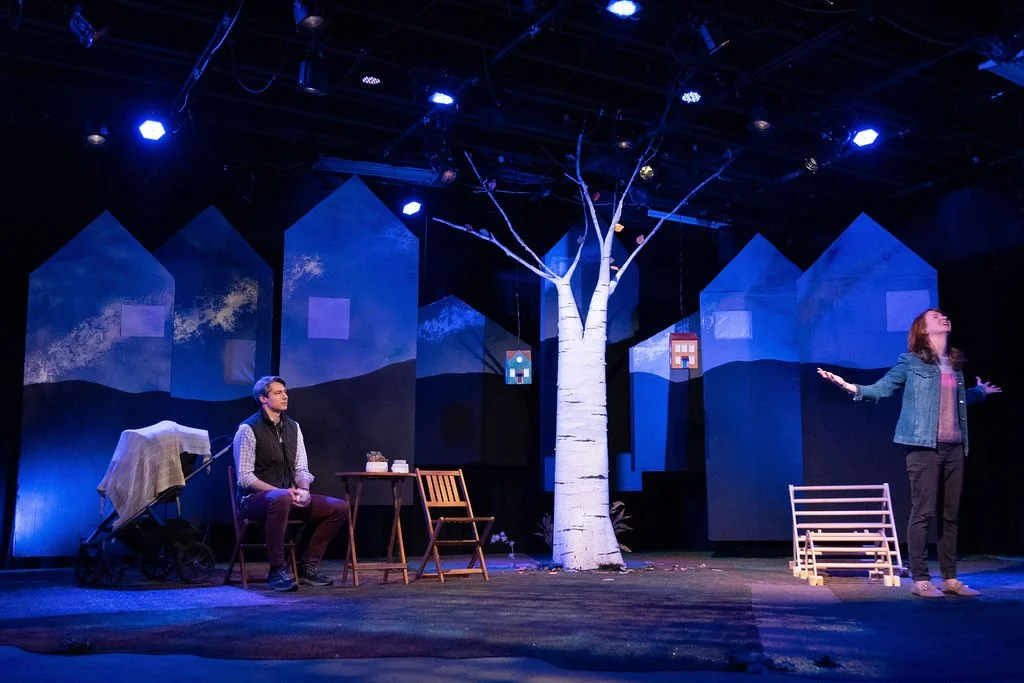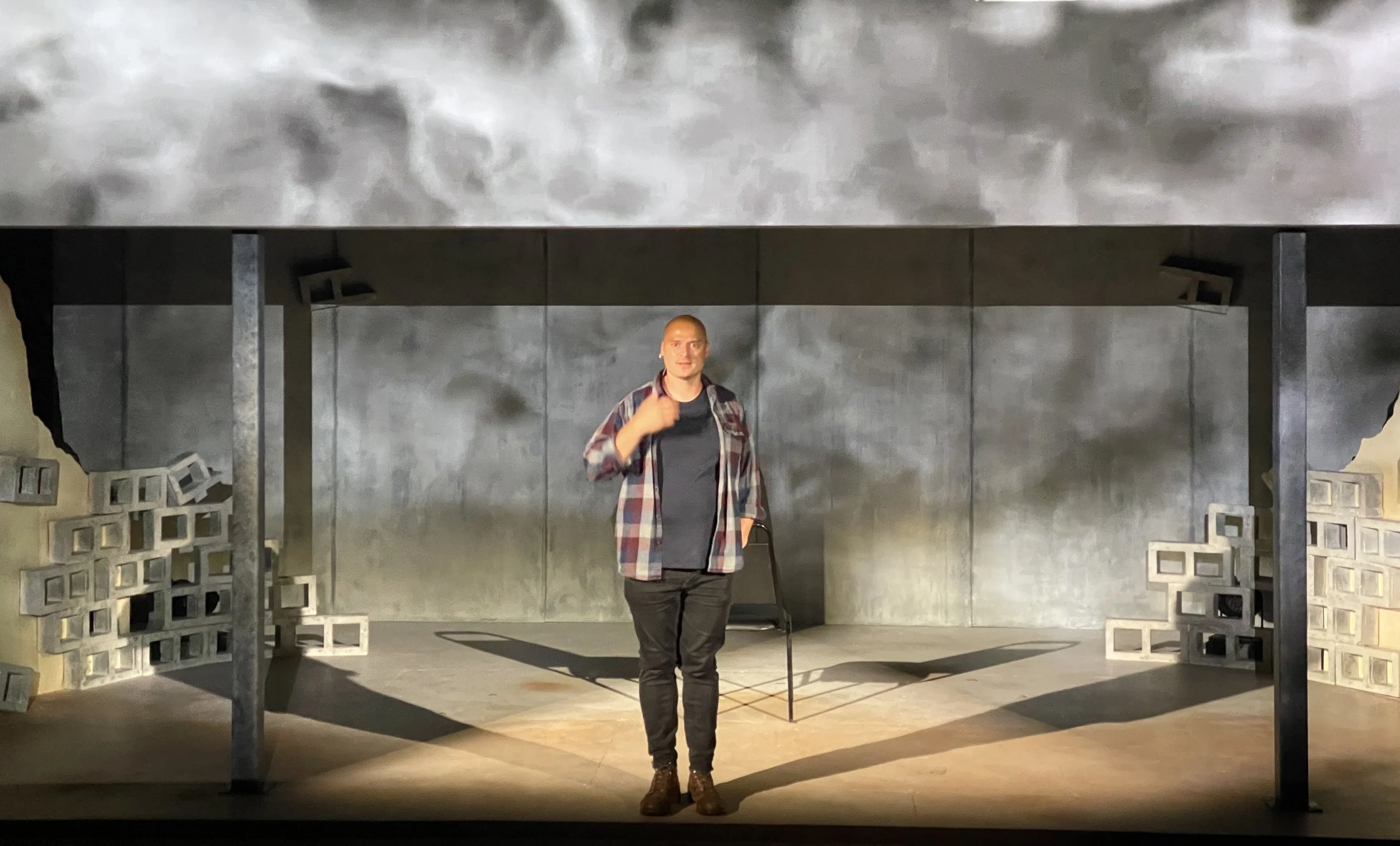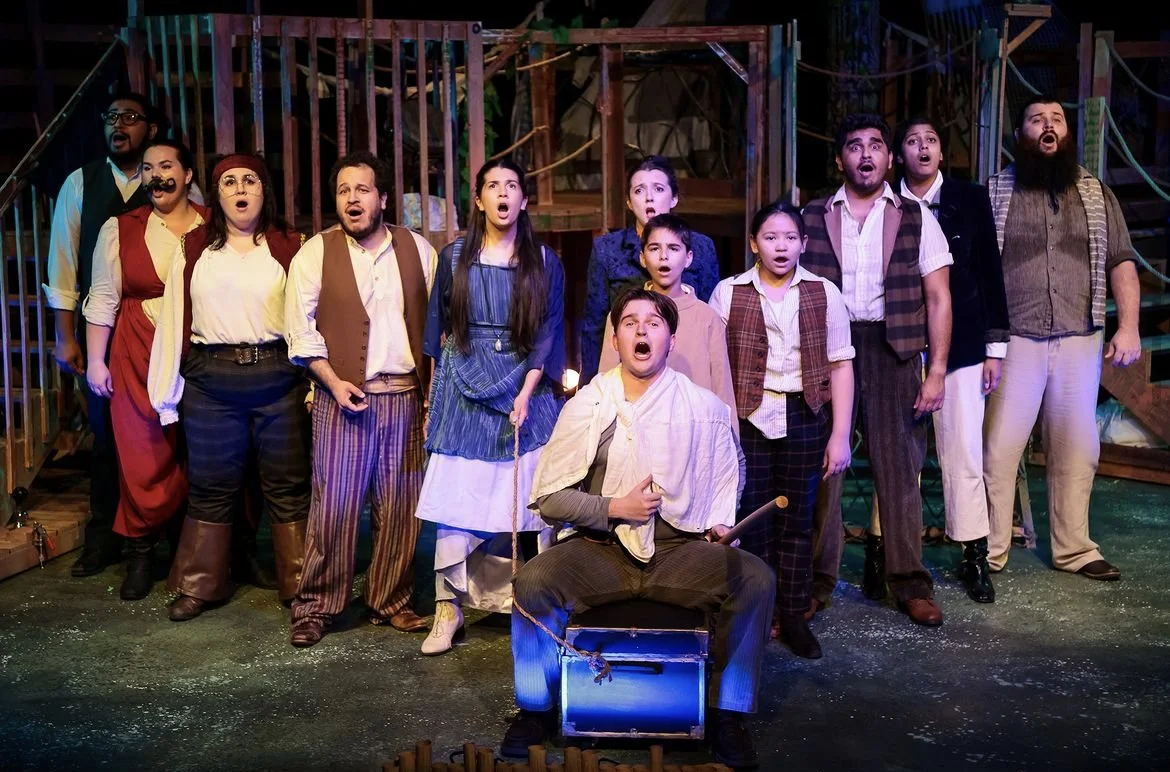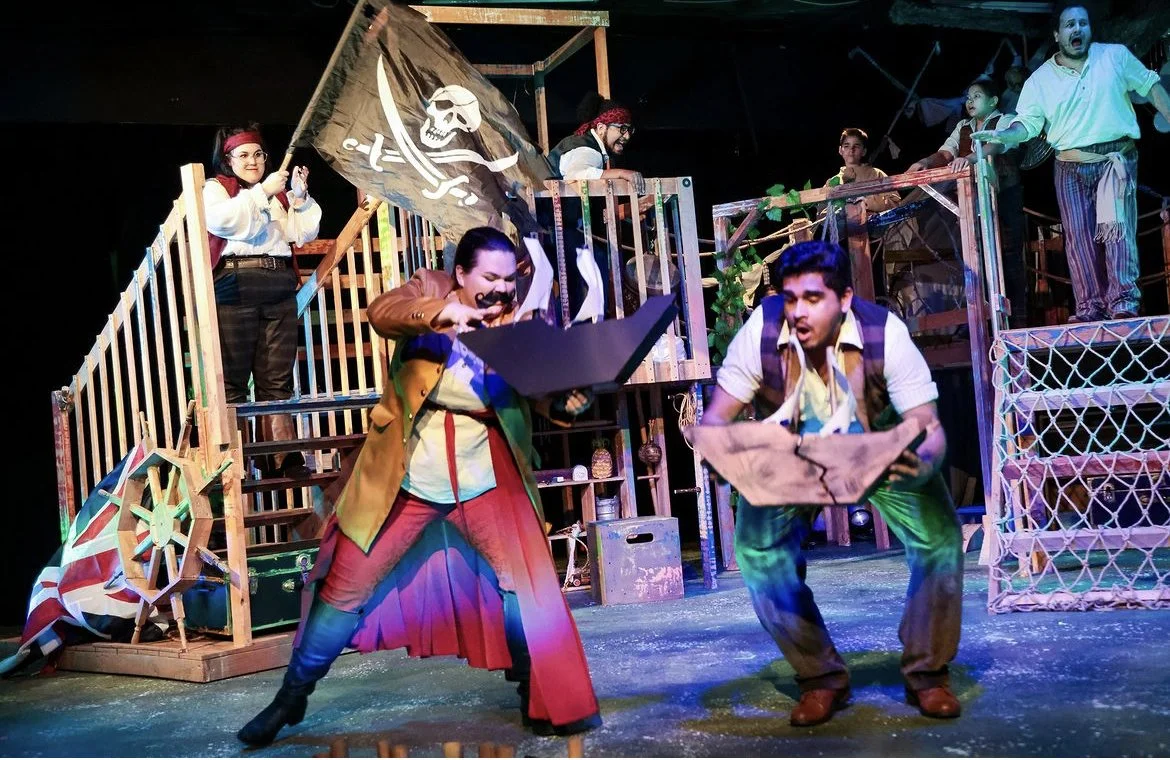Read the below article from the City Lights Staff team at Wabe:
“As the effects of climate change command our attention in real life, the crisis has also become a subject for creative self-expression. “Our Sacred World: An Opera with Dance” is a fantasy based on reality, written as a love letter to Mother Earth. Amy Leventhal created the libretto and composed the music for “Our Sacred World,” which will be performed on Saturday, Jan. 21, in the Cole Auditorium of the Fine Arts Building at Georgia State University Perimeter College.
Amy Leventhal joined “City Lights” host Lois Reitzes via Zoom along with stage director Lauren Morris to talk about the opera and the opportunity it presents for a conversation about climate.
Heroes and villains of the climate crisis, anthropomorphized:
“Mother Earth shows up at the beginning, and she’s a little annoyed, and then… she becomes a bit enraged. She doesn’t understand why humans aren’t valuing her, so she’s one of the main characters, but she also talks about everything she provides for humans. It’s quite a list of wonderful things, as we all know, living on our planet,” Leventhal recounted. “We also have a character named Big Money, who Mother Earth devises a plan, and Big Money devises a plan, and their plans intertwine, and that’s part of the plot of the opera. So Big Money has a cohort named Mine Mine Mine, and Mother Earth has a creature she has created called Little Tree, and she also has Climate Change, who works for her.”
“I had a dream about a character named Tyrannicus, and I was going to write a ballet about Tyrannicus, and Tyrannicus is a character in this opera,” said Levanthal. “He’s part of the ‘Dance of White Men’ and the ‘Dance of Bullying.’ But it became clear to me that he wasn’t the main focus, and then when I wrote the libretto, I could see everything on stage. I often, when I listen to music… I have kind of a movie running in my head, often with sound, and so I was envisioning the dances, and the dances evolved out of the libretto and the music and the singing. I knew that I wanted dance, movement, as part of the music. I think movement and music are totally interlinked.”
On taking on the job of directing dance in the midst of opera:
“It’s my job to create an environment where everyone in the room can do what they do best in the whole world, and in this case, that’s for these beautiful artists to sing… it’s for [choreographer Scott] Douglas’s company of dancers to make shapes, and move, and push the limits of what human form can do,” said Morris. “So some of that job of creating an environment is simply logistical, making sure that everyone can get where they need to be, when they need to be there…some of it is, I would say a lot of it, actually, is allowing them the freedom to really step into that, and to be able to create in the most free and fantastical ways that they can.”
How opera can bring the concerns and questions of humanity to center stage:
“I think people love stories. I think it’s innate in all of us. We like to sit around the campfire, and I believe that opera has it all,” said Leventhal. “It has the story. It has amazing singers. In this case, the Full Radius Dance Company will be performing eight dances within the opera, and I think opera, as a medium, its music is so emotional, and it bypasses words, in a way. Even though there are words in opera, it goes right to the heart, and I think people can really feel a story as well as see it and experience it.”
“The planet’s going to outlive us. It’s about whether humans can continue on the planet and all the species that we share the planet with,” Levanthal reflected. “I think, yes, [there is] lots of hope, and in the opera, getting people who have money and power to fall in love with Mother Earth, and also to provide Mother Earth with as much loving care as we possibly can in our individual ways. And yes, I think within the opera, there’s a lot of hope, there’s a lot of humor. And by the way, I based Climate Change on Lady Gaga.”
https://www.wabe.org/our-sacred-world-an-opera-with-dance-offers-hopeful-introspection-on-climate-change/








